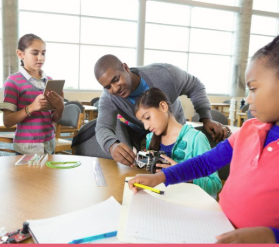As schools increasingly adopt student-centered strategies, personalized learning has emerged as a transformative force in education. By tailoring instruction to individual strengths, needs, and interests, this approach seeks to boost student engagement and deepen academic achievement. In 2025, more educators and families are asking an important question: Does personalized learning improve academic performance?
How Personalized Learning Enhances Academic Outcomes
- Customized Instruction for Targeted Growth
Personalized learning enables educators to adapt lessons to meet students where they are. This individualized instruction helps reinforce foundational skills while accelerating learning in areas where students excel, leading to stronger performance across subjects. - Increased Student Motivation and Ownership
When students are given choices in how they learn, they often become more engaged. This sense of ownership encourages consistent effort, goal setting, and reflective habits—all of which contribute to improved academic results. - Timely Feedback and Progress Monitoring
Technology and formative assessments play a key role in personalized learning. These tools allow for real-time feedback, helping students understand their progress and make necessary adjustments. As a result, learning becomes more effective and outcomes more measurable. - Support for Diverse Learning Styles and Paces
Not all students learn in the same way or at the same pace. Personalized learning acknowledges these differences and provides multiple pathways for success. This inclusivity supports learners who may struggle in traditional models, helping narrow performance gaps. - Fosters Critical Thinking and Deeper Understanding
By focusing on student interests and encouraging exploration, personalized learning promotes curiosity and critical thinking. Students engage with content in more meaningful ways, which leads to stronger retention and comprehension.
Evidence from Schools and Classrooms
Many schools implementing personalized learning have reported noticeable academic gains, particularly in reading and math. While results vary by implementation and context, educators have observed improvements in test scores, classroom participation, and overall student confidence.
Teachers also note that students working within personalized models tend to be more resilient and proactive in their studies. With guided support and flexible pacing, learners develop strategies to overcome challenges, contributing to sustained academic growth.
Keys to Effective Implementation
To ensure positive academic outcomes, personalized learning should be supported by:
- Clear academic standards and learning goals
- Ongoing teacher training and collaboration
- Reliable data systems to monitor progress
- Inclusive and accessible materials for all students
Looking Ahead
As personalized learning becomes more refined and accessible, its potential to enhance academic performance continues to grow. In 2025 and beyond, schools that prioritize individual learning pathways, strong teacher-student relationships, and equity-focused practices are likely to see lasting academic benefits.
With a thoughtful approach, personalized learning can turn classrooms into environments where every student is empowered to succeed on their unique academic journey.














